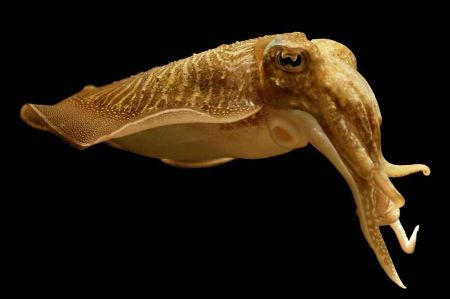Squids - intelligent sea creatures or pure "food source"
- Written by Portal Editor
Especially in recent times there have been more articles and reports in the media on the intelligence of squids, which biologically are considered a subgroup of the so-called cephalopods (Cephalopoda).
On the one hand, there are reports that rather questionably predicted the results of the football world championships, and on the other hand, there are highly scientific experiments and trials that clearly point to the intelligence of these unusual animals. We especially remembered the report from a test laboratory in Italy, where really extraordinary tests with squid were presented.
Squids" only have a rudimentary shell

The oldest finds that can be assigned to squids come from the Lower Carboniferous in North America. About 800 species are currently known from today's seas, and more new species are constantly being discovered and described. In the reports on the fossil finds, about 2000 more species have been described. Colloquially and historically, only a subgroup of the Coleoidea, the cuttlefish, is often referred to as squid. The cuttlefish (Sepiida) together with the squid (Teuthida) and the smaller orders of the dwarf squid (Sepiolida) and post squirrels (Spirulida) form the group of the ten-armed squid (Decabrachia), which are divided by the eight-armed squid (Vampyropoda), to which the octopus ( Octopoda) and the cirrus-carrying octopuses (Cirroctopoda) and the vampire squid-like (Vampyromorpha) are counted. The extinct belemnites or thunderbolts (Belemnoidea) are also counted among the squids (Coleoidea), since ink sacs have been detected in some complete specimens.
Squids in particular "learn" by observing their conspecifics

But now back to the experiments on the intelligence of the squid. First of all, it should be made clear that tests with animals may only be carried out under certain conditions and conditions. This is by no means about so-called animal testing. Species-appropriate husbandry, care and care must always be the absolute priority. If this is guaranteed, tests can best be carried out with loot in the form of rewards. This is also the case in the tests that we want to cite here.
The squid live in a large aquarium and are examined and measured several times so that their exact size and weight are known. For the planned experiments, it is necessary to know the exact head size of the animals, so that the experimental setup can be designed accordingly. Furthermore, by adding freshly caught squid, one wants to avoid that "learning effects" lead to the test results solely through the experiments with the animals already available. In addition, it is known that squids in particular "learn" by observing their conspecifics.
Octopus glides, head back, quickly and smoothly through the narrow loops
This test procedure is carried out several times with different squids and one is amazed at the possibility of the squid arms' sense of touch. How can one infer the necessary cross-sectional area for one's own head simply by touching it? So far there have only been assumptions by the experts, and there is a lack of evidence and evidence.
A second aquarium, in which the freshly caught squid is placed, is added to the experimental set-up already described. Now the experimental setup is loaded again with prey and an "experienced" squid, which is being carefully observed by its new neighbor. The right tube is quickly found again and the way to the loot is free. Now the freshly caught squid is placed in the experimental setup and new prey brought in. As if the movements of his leader were being copied, even the newcomer finds the right way to the prey surprisingly quickly. No attempt to take the direct path or possibly even get directly through the glass walls to the loot.
A brain development and thus an intelligence at least close to that of humans
So, the question remains, are squid the smarter creatures? Again and again one can only be amazed and astonished to see what wonderful things are possible in nature and the environment. We still don't know about the countless possibilities and resources that our environment has to offer. Everywhere there is a lack of research, knowledge and the resulting rethinking processes.
Please read as well:
